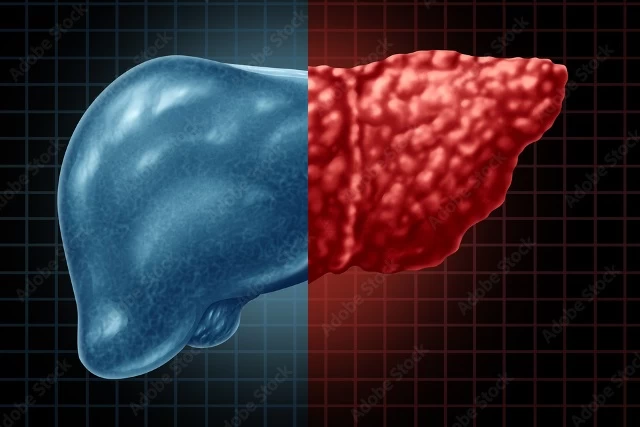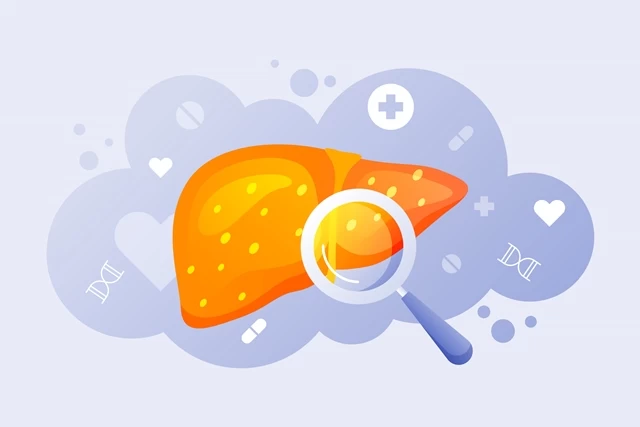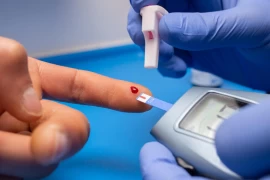
Non-Alcoholic Fatty Liver Disease (Non-Alcoholic Steatohepatitis)
- Non-Alcoholic Fatty Liver Disease (Non-Alcoholic Steatohepatitis)
- What is Non-Alcoholic Fatty Liver Disease (NAFLD)?
- What are the Symptoms of Non-Alcoholic Fatty Liver Disease?
- What are the Treatment Methods for Non-Alcoholic Fatty Liver Disease?
- In conclusion...
What is Non-Alcoholic Fatty Liver Disease (NAFLD)?
Non-Alcoholic Fatty Liver Disease, also known as Non-Alcoholic Steatohepatitis or NAFLD, is defined as the accumulation of fat in the liver, unrelated to alcohol consumption. It is generally a condition not associated with alcohoal consumption.
What are the Symptoms of Non-Alcoholic Fatty Liver Disease?
NAFLD often does not cause noticeable symptoms, and many individuals are unaware of the disease. However, some people may experience the following symptoms:
- Fatigue and tiredness: Accumulation of fat in the liver can lead to reduced energy levels, resulting in constant fatigue and tiredness.
- Discomfort in the abdomen: Mild discomfort or a sensation of pain can be felt in the upper right portion of the liver. This can often manifest as a mild pressure or fullness sensation.
- Abdominal bloating: A feeling of bloating in the abdominal region can occur, causing the abdomen to appear swollen or full.
- Weight loss or weight gain: In some cases of NAFLD, weight loss may occur. However, in other cases, weight gain or difficulty losing weight may be observed due to liver disease.
- Skin problems: Some individuals may experience symptoms such as itching, redness, or rashes on the skin due to liver issues.
- Changes in appetite: Some people may notice changes in their appetite. This can manifest as a loss of appetite or excessive hunger.
The above symptoms are common indicators of NAFLD, although they can present differently in each individual or may be completely absent in some cases.

What are the Treatment Methods for Non-Alcoholic Fatty Liver Disease?
The following methods and strategies can be employed in the treatment of NAFLD:
- Lifestyle changes: The most important step in NAFLD treatment involves lifestyle modifications, which can include:
- Weight control and weight loss: Attaining and maintaining a healthy weight is crucial in reducing liver fat accumulation.
- Adopting a healthy diet: Following a balanced diet that limits the consumption of fatty, processed, and sugary foods is necessary. Instead, a nutrition plan should focus on vegetables, fruits, whole grains, lean proteins, and healthy fats.
- Increasing physical activity: Regular exercise aids in weight control and can improve liver health. A target of at least 150 minutes of moderate-intensity aerobic exercise per week should be set.
- Limiting or eliminating alcohol consumption: It is important for individuals with NAFLD to limit or completely abstain from alcohol, as it can cause further damage to the liver.
- Management of accompanying health conditions: If there are concurrent health issues such as diabetes, high blood pressure, or high cholesterol along with NAFLD, it is crucial to manage these conditions as well. The doctor can provide appropriate treatment and medications to control these health problems.
- Medications: In some cases, medications may be used to improve liver health. For example, certain medications are available to regulate insulin resistance or reduce inflammation in the liver. However, these medications may not be suitable for every patient, and the most appropriate treatment will be determined by the doctor.
- Regular monitoring and follow-up: It is important for individuals with NAFLD to have regular follow-up appointments with their doctors. Liver function tests, imaging methods, or other tests may be required to monitor the progression of the disease and update the treatment plan.
Remember that NAFLD treatment involves addressing the underlying causes of the disease and implementing lifestyle changes. With early diagnosis and treatment, the progression of the disease can be slowed down, and liver health can be improved. It is important to discuss your treatment plan and the steps you need to follow with a specialist doctor.
In conclusion...
An important point to note is that NAFLD is a progressive disease. Early diagnosis and appropriate treatment can slow down or halt its progression. Therefore, if you have concerns about your liver health, it is important to consult a healthcare professional. Your doctor can recommend suitable treatment options and provide ongoing monitoring and support.





